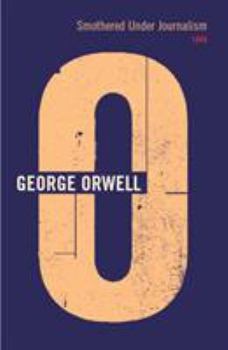Smothered Under Journalism: 1946
Volume 18 of The Complete Works of George Orwell
Journalism took a heavy toll on Orwell in the first months of 1946. Despite this unremitting pressure, he produced a major sequence of articles on 'The Intellectual Revolt'. He wrote one of his finest short essays, 'Some Thoughts on the Common Toad'. He reviewed Zamyatin's We, wrote two radio plays for the BBC, The Voyage of the Beagle, and a version of 'Red Riding Hood' for Children's Hour, and a pamphlet for the British Council, British Cookery; these three are printed here for the first time. The complex history of 'How the Poor Die' is unravelled, as is the problem posed by his passports giving his date of birth incorrectly, something that would prove significant in the writing of Nineteen Eighty-Four. Orwell renewed contact with Yvonne Davet; he corresponded with Ihor Szewczenko; he tried to get Victor Serge's memoirs published in English and, with Arthur Koestler, to expose Soviet responsibility for the massacre of the Poles by arranging for a translation of Joseph Czapski's Souvenirs de Starobielsk to be published. Despite all this, Orwell did get away to Jura with his son, Richard. He was able to relax and even fish, as his Domestic Diary (published for the first time) shows; and he wrote fifty pages of Nineteen Eighty-Four. This volume includes Orwell's telling letter to Dwight Macdonald on the necessity for people to rid themselves of leaders of a violent revolution before they became entrenched (5 December 1946). This was what the animals of Animal Farm had failed to do.Format:Paperback
Language:English
ISBN:0436205564
ISBN13:9780436205569
Release Date:October 2001
Publisher:Secker & Warburg
Length:592 Pages
Weight:1.65 lbs.
Dimensions:1.2" x 6.0" x 9.2"
Customer Reviews
0 rating





